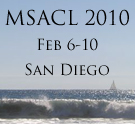Chong-xian Pan: Dept of Internal Medicine, University of California at Davis, 4501 X Street, Sacramento, CA 95817
Tao Li: City of Hope National Medical Center, 1500 East Duarte Road, Duarte, CA 91010
Miaoling He: Dept of Internal Medicine, University of California at Davis, 4501 X Street, Sacramento, CA 95817
Ralph de Vere White: Dept of Urology, University of California at Davis, 4501 X Street, Sacramento, CA 95817
David Gandara: Dept of Internal Medicine, University of California at Davis, 4501 X Street, Sacramento, CA 95817
Kenneth Turteltaub: Lawrence Livermore National Laboratory, Livermore, CA
Paul T Henderson: Dept of Internal Medicine, University of California at Davis, 4501 X Street, Sacramento, CA 95817 |
|
BACKGROUND: DNA damage is the critical step in cancer cell response to platinum (Pt) chemotherapy. We hypothesize that low levels of Pt-induced DNA damage are predictive of chemoresistance. Accelerator mass spectrometry (AMS), an ultrasensitive method for measuring radiocarbon, can detect [14C]carboplatin bound to the DNA of cancer cells from cell culture, mice bearing tumor xenografts and patients receiving subtoxic microdoses of compound.
METHODS: Cancer cells and mice bearing tumor xenografts were treated with one microdose (1/100th of the therapeutic dose) or one therapeutic dose of [14C]carboplatin. Relevant parameters such as drug influx/efflux, intracellular drug inactivation, DNA damage and repair, were measured and correlated with response to chemotherapy. A Phase 0 microdosing trial has been designed to study patients with non-small cell lung or bladder transitional cell cancers who are planning to receive Pt-based chemotherapy. One microdose of [14C]carboplatin is administered to these patients 4 hours before biopsy. Pt-induced DNA damage and repair in tumor biopsy specimens and other relevant parameters will be measured and correlated with the response and toxicity of chemotherapy.
RESULTS: Preclinical studies showed that AMS can detect Pt-DNA damage when cancer cells and mice with tumor xenografts are exposed to one microdose of [14C]carboplatin. The levels of microdose-induced DNA damage are directly proportional to the damage caused by a therapeutic drug dose (p<0.001); and these levels of DNA damage correlate with chemoresistance as measured by MTT assay. Measuring drug uptake/efflux, intracellular inactivation and DNA repair allows determination of some of the underlying chemoresistant mechanisms. These data support the conclusion that the levels of DNA damage induced by microdosing can potentially predict chemoresistance in patients. Consequently, a Phase 0 microdosing trial has been designed.
CONCLUSION: These results support a phase 0 microdosing trial employing AMS to identify chemoresistance and determine the underlying chemoresistant mechanisms for personalized therapy before patients receive cytotoxic chemotherapy. |
|



